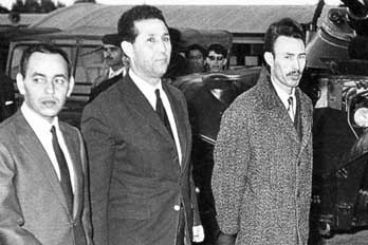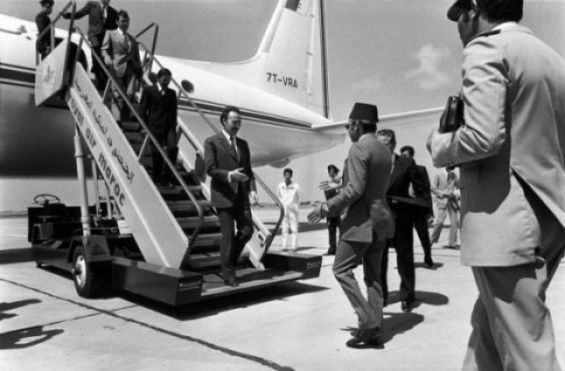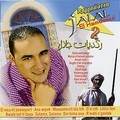The Western Sahara conflict has been through a series of phases. One of its interesting chapters is marked by Algeria’s support. After the two countries fought a brief war (Sand War) in October 1963, Algeria promised to help Morocco retrieve a part of its territory that was colonized by Spain.
On August 21, 1974, Spain, which was still occupying the Sahara, announced that it will be organizing a referendum on self-determination in the region by the beginning of 1975. Spain was very serious about the project that it hosted a census in the Sahara, concluding that around 80,000 Sahrawis lived there.
In Morocco, King Hassan II opposed the Spanish decision and rejected the idea of organizing a referendum. Morocco’s rejection was translated into a diplomatic campaign against Spain, launched during General Francisco Franco’s serious illness.
Determined to go till the end, the Kingdom thought of seeking the opinion of the International Court of Justice. This was done after the United Nations accepted Morocco’s request.

It is in this context that Morocco, which was expected to host an Arab summit in October 1974, organized a press conference in September of the same year to discuss the agenda of this meeting. During this period, the Western Sahara question was put on the table.
During said press conference, king Hassan II was asked about the position of Algeria on the issue. According to the second issue of the magazine «Dafater Assahrae» (Cahiers du Sahara, November 2015) published by the Ministry of Communication, the King of Morocco said that «Morocco is the only part that is concerned by this question».
«This is the reason why Morocco sought the opinion of the International Court of Justice. Some parties think that Mauritania is also concerned, but that is up to the Court», he added. Hassan II also said that «Algeria has never been concerned by the Sahara issue». «It has officially declared it, because it is not part of the conflict and has no claims over it», he argued.
Boumediene’s promise to king Hassan II
Asked about the position of the Algerian government on the Sahara conflict, Hassan II couldn’t hide his satisfaction. «Of course, I am thrilled, as long as Algeria does not claim what belongs to Morocco. The Algerian government has announced it, as President Houari Boumediene told me (…) he has shown me that he is ready to meet his promises. He told me that Algeria has no interest in the Sahara», he said.
«More than that, he (Houari Boumediene) asked me to let him know, 48 hours in advance, if there is any military intervention so he can provide help. He told me this in a letter. I can only be thrilled about it».
Hassan II also said that Morocco is counting on «the president of the next session of the UN General Assembly, Mr. Abdelaziz Bouteflika». «He wants to prevent his country from having to choose between supporting Mauritania and backing Morocco, a situation that other Arab, African and European countries are dealing with», he added.
Commenting on Morocco’s request to the UN, the Moroccan sovereign recalled that Spain considered the Sahara as terra nullius (nobody’s land), while Morocco claimed the opposite. «We are therefore asking for the opinion of the International Court of Justice, which will have the final say», he said.

To the King, the Court, which is the principal judicial organ of the United Nations, «will pronounce its ruling based on documents set to enlighten the United Nations and guide Morocco and Spain». «If the International Court of Justice finds out that the Sahara was a terra nullius, I will accept the referendum (…) But if it says that Morocco has rights to claim, I will ask the United Nations to allow us, as well as Spain, to have direct talks», he told reporters.
Algeria’s position after the Green March
The comments of King Hassan II were never endorsed by the Algerian President. «The Sahara conflict concerns Morocco and Mauritania. Algeria supports the two states and the idea of retrieving every inch of our land, not only Western Sahara but also Ceuta and Melilla and the Islands occupied by Spain», he said during the Arab summit in October 1974 in Rabat.
«The President of the Algerian Republic took the floor during the conference to say (…) that Algeria is only interested by the future borders it would share with the Sahara and that it must know about the position of Morocco and Mauritania amid the current conflict to avoid ambiguity», said king Hassan II in a second conference held after the Arab summit in Rabat.
On October 16, 1975, the International Court of Justice issued its advisory opinion on Western Sahara, considering that the territory was not terra nullius as said by Spain. It also ruled that there were no legal ties of allegiance between this territory and the Kingdom of Morocco.
The UN body concluded «that neither legal tie implied sovereignty or rightful ownership over the territory», stressing that «these legal ties also did not apply to self-determination through the free and genuine expression of the will of the peoples of the territory».
On the same day, King Hassan II announced the Green March, pushing Algeria to change its position on the Sahara.
In the book «La Memoire d’un Roi» (A king’s memoire) by Eric Laurant, King Hassan II reported that Boumediene was angry when he knew about the Green March. «He was in an abnormal state, saying that ‘it was real madness to reunite 350,000 people and control the situation, especially that it's happening near the border with my country and I'm so concerned'», he added.
Moreover, the Madrid Agreement signed on November 14, 1975 between Spain, Morocco and Mauritania irritated Algeria even further, which as a result officially declared its support for the Polisario Front and its self-proclaimed «SADR» on 27 February 1976 in Tindouf.





 chargement...
chargement...













